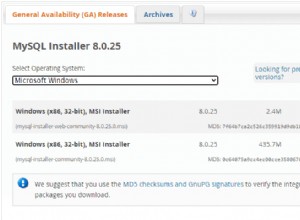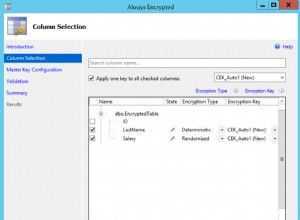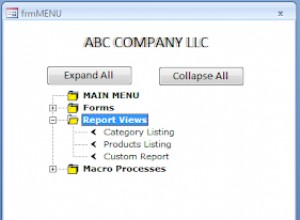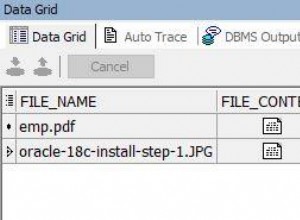In SQL Server 2005 o versioni successive, è possibile utilizzare questo script:
-- drop PK constraint if it exists
IF EXISTS (SELECT * FROM sys.key_constraints WHERE type = 'PK' AND parent_object_id = OBJECT_ID('dbo.YourTable') AND Name = 'PK_YourTable')
ALTER TABLE dbo.YourTable
DROP CONSTRAINT PK_YourTable
GO
-- drop column if it already exists
IF EXISTS (SELECT * FROM sys.columns WHERE Name = 'RowId' AND object_id = OBJECT_ID('dbo.YourTable'))
ALTER TABLE dbo.YourTable DROP COLUMN RowId
GO
-- add new "RowId" column, make it IDENTITY (= auto-incrementing)
ALTER TABLE dbo.YourTable
ADD RowId INT IDENTITY(1,1)
GO
-- add new primary key constraint on new column
ALTER TABLE dbo.YourTable
ADD CONSTRAINT PK_YourTable
PRIMARY KEY CLUSTERED (RowId)
GO
Naturalmente, questo script potrebbe ancora non riuscire, se altre tabelle fanno riferimento a questo dbo.YourTable utilizzando i vincoli di chiave esterna sul RowId preesistente colonna...
Aggiornamento: e ovviamente , ovunque io utilizzi dbo.YourTable o PK_YourTable , devi sostituire quei segnaposto con effettivo nomi di tabelle / vincoli dal tuo database (non hai menzionato cosa fossero, nella tua domanda.....)




